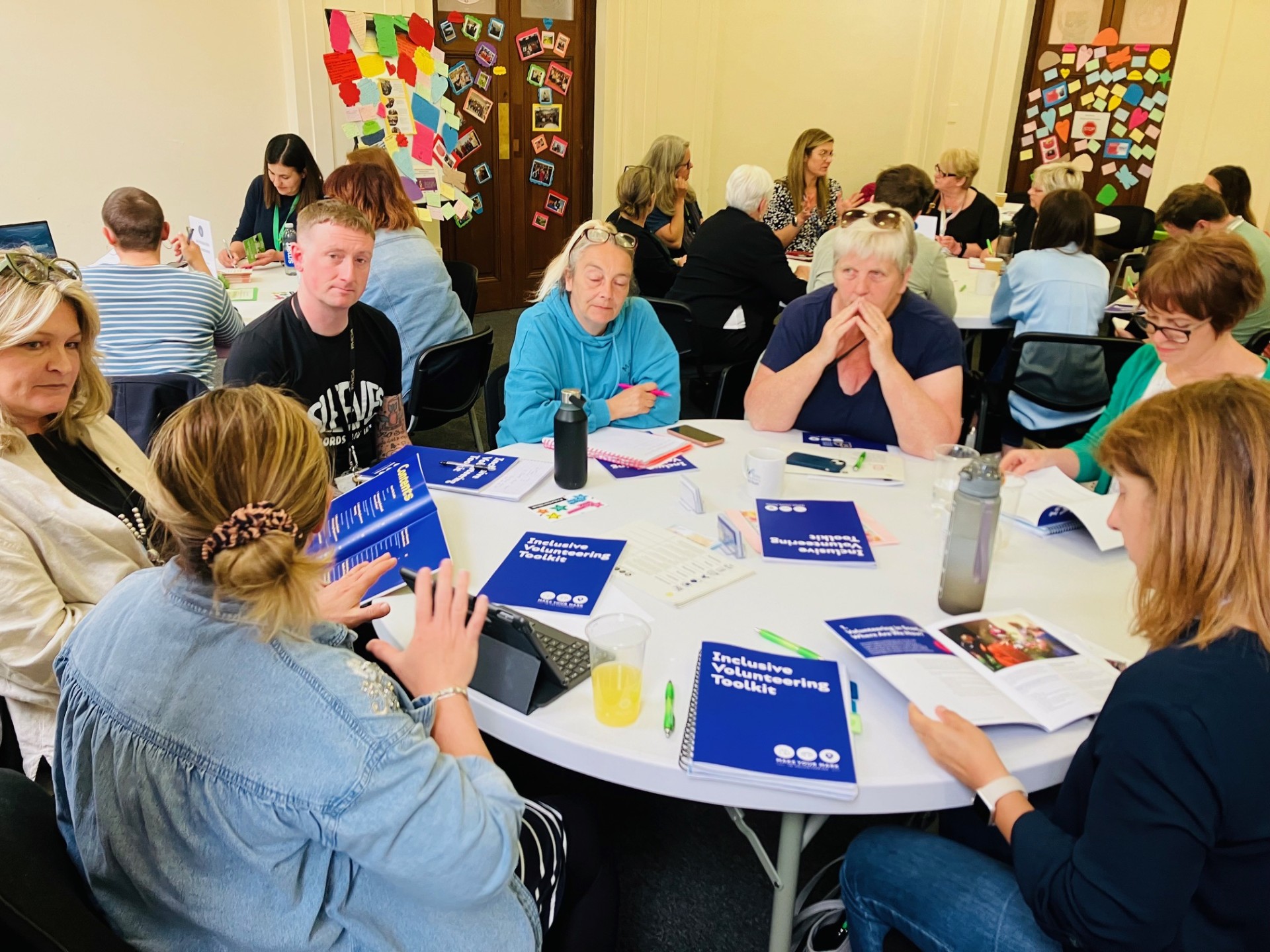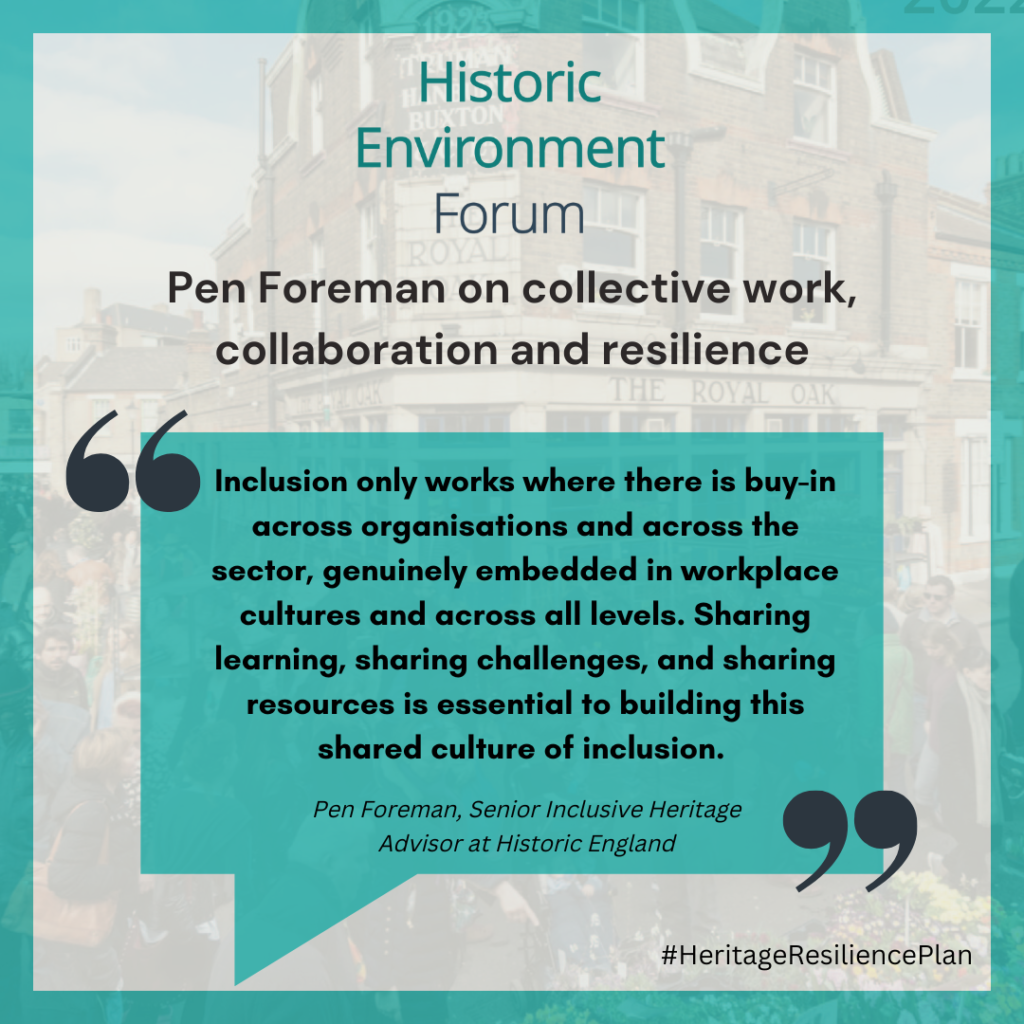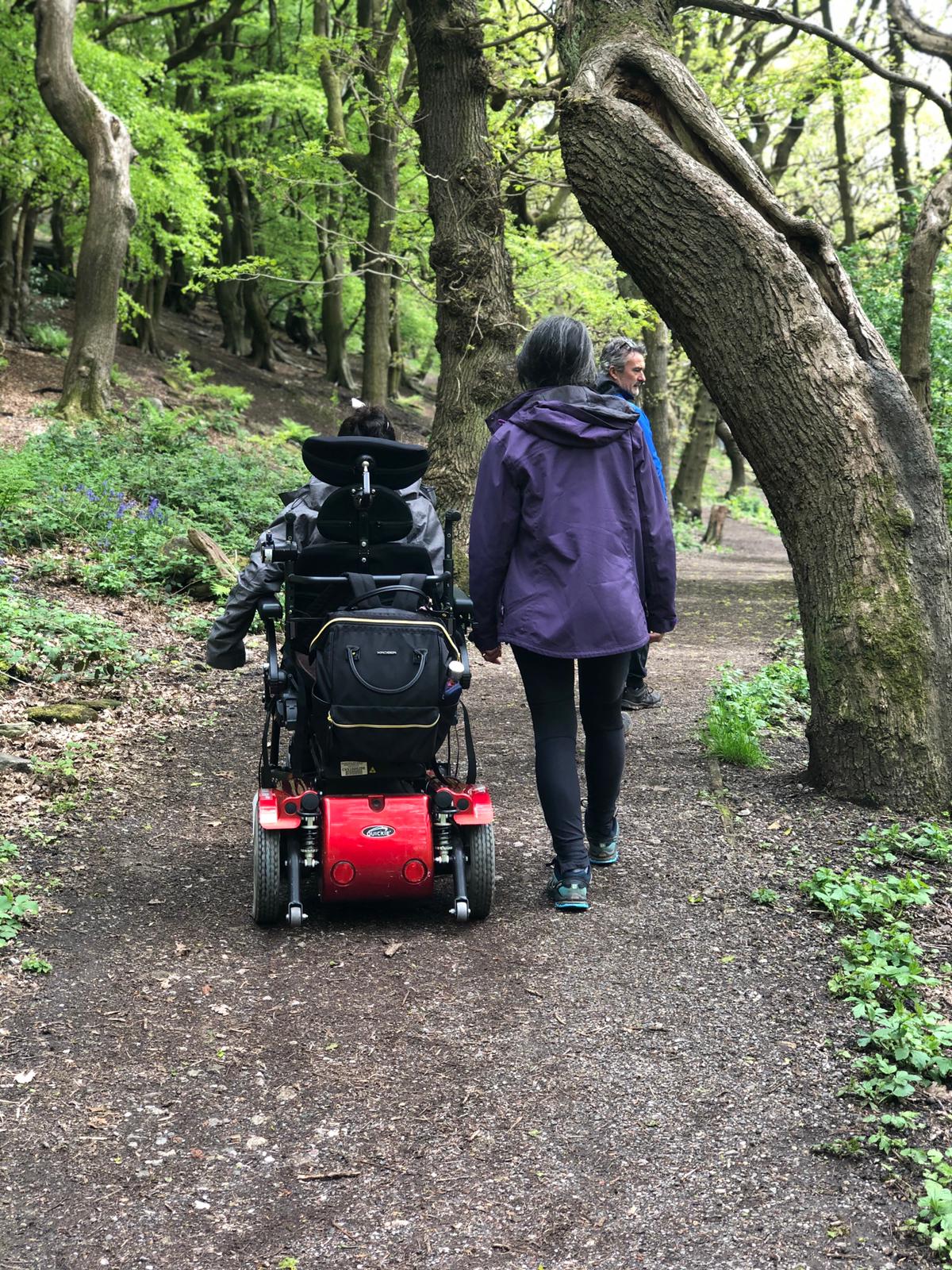Diversity & Inclusion Resilience: an Interview with Sarah Pearce at Heritage Trust Network
In the latest instalment of the Historic Environment Forum’s Sector Resilience Interviews series focussed on the theme of Diversity and Inclusion, we hear about the “Make Your Mark” campaign from Sarah Pearce, Campaign Partner and Chair of Membership & Promotions Action Group at Heritage Trust Network.
Please tell us a bit about yourself and your organisation’s role in the sector.
Make Your Mark is a campaign that aims to increase the number and diversity of heritage volunteers. It is the Scottish heritage sector’s response to the continuing realities of societal inequities and the need to increase community engagement with heritage, volunteering being a main tool for this.
The Make Your Mark campaign is supported by a partnership between national stakeholders in the heritage and voluntary sectors in Scotland. It was created by the Our Place in Time Volunteering Group and continues under the new strategy for Scotland’s historic environment – Our Past, Our Future. As a group we took the decision to deliver a tangible project instead of writing a strategy within a strategy.
The campaign is funded by the National Lottery Heritage Fund, with financial and in-kind support from campaign partners.
What can you tell us about your organisation’s work in relation to Diversity and Inclusion? What does this work aim to achieve?
The campaign has two target audiences, volunteers and volunteer organisers. Our aim is to support more people to volunteer in the heritage sector – connecting potential volunteers with opportunities, and to support volunteer organisers to remove barriers and create an inclusive volunteering environment.
Our work to date has included the creation of digital resources, a map of expert inclusion organisations/contacts and blogs shared publicly via the MYM website. This is boosted by regular digital and in-person events, where case studies of inclusive volunteering practises are shared from across the UK. A Team Kinetic portal is key to the campaign, as it is an online platform where heritage groups can promote their volunteer opportunities to new people who they aren’t already connected with. In 2023 the Scottish Government funded the creation of an Inclusive Volunteering Toolkit, which has been published digitally and printed, it is now being brought to life by workshops across Scotland.
What contribution will this make towards resilience in the heritage sector?
The campaign is connecting new people with a vast range of built, natural and cultural heritage projects and organisations across Scotland. This allows the organisations to benefit from a wider variety of perspectives and contributions than previously experienced. It encourages them to highlight previously untold stories and histories at their sites. It allows them to grow their volunteer base at a time when volunteering is declining.
The partnership that is driving forward the campaign is also boosting resilience in the heritage sector, as it is bringing together many partners who have not worked together before – particularly through the combination of the different types of heritage e.g. The RSPB and The Society of Antiquaries.
What does success look like for your work?
Success includes: the number of potential volunteers registered on our portal, the number of opportunities on the portal, the number of people at our online events, the number of people at physical outreach events, engagement with our social channels and website views.
Through the funding from the National Lottery Heritage Fund we are now paying for the time and expertise of four inclusion partners, including: Glasgow Disability Alliance, Jambo! Radio, Amina Muslim Women’s Resource Centre and the Scottish Refugee Council. We consider it a success to be able to work with these partners, value and incorporate their expertise.

How can sector colleagues get involved or find out more?
Anyone can access our free digital resources via our website www.makeyourmark.scot, including the new Inclusive Volunteering Toolkit for volunteer organisers. You can also sign up for our newsletter whether you’re involved with heritage or not, and no matter where you are located, to benefit from the latest news and events.
Organisations based in Scotland, who work with any heritage-related project can sign up to the campaign, agree to the manifesto (noting your commitment to become more inclusive in your volunteering practises) and advertise opportunities on the portal. You can then also access certain member-only events.
Overall, what do you think is most crucial for ensuring a resilient heritage sector?
Communication, partnerships and ongoing learning.
This Sector Resilience interview was shared by Sarah as part of our Heritage Sector Resilience Plan activities.
If you’d like to contribute an interview as part of the series, follow the link below to find out more:




